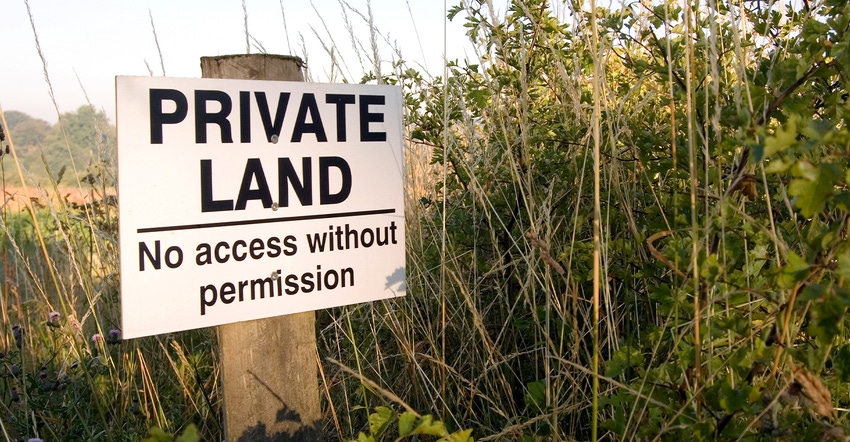June 21, 2019

I didn’t need to watch the animal abuse video filmed on a large Indiana dairy to know it was ugly.
All I needed to do was read comments posted on social media. Some people provided details of the abuse. Some people were verbally nasty to those who voiced support of the dairy.
If you haven’t heard, Fair Oaks Farms, an agritourism business in northwestern Indiana, was blindsided by videos released in early June by an animal rights group called Animal Recovery Mission. Months earlier, ARM sent investigators to apply and get hired for barn jobs so they could collect undercover video of animal abuse. The animal rights group targeted Fair Oaks, believing that dairy animals on mega-farms are subjected to routine cruelty. Fair Oaks milks around 35,000 cows on several farms.
Upon viewing the videos, business owner Mike McCloskey, also a veterinarian, took action. He fired a fourth employee — three employees had previously been fired after co-workers reported animal abuse a couple months earlier. On the farm’s Facebook page, he apologized and said current employee training policies would be strengthened. He also said he would seek criminal prosecution for those involved in animal abuse, install and operate cameras 24-7 in all livestock facilities, and pay for random third-party audits every two to four weeks to review animal care.
As of mid-June, three former employees were charged with animal cruelty and one of the three was taken into custody by the county sheriff.
In his Facebook posts, McCloskey said the video “broke his heart” and he apologized, saying it will never happen again.
“As hard as we try, we can always end up with bad people in our organization and this is what happened to us, so it is imperative that every inch of our farms can be viewed 24 hours a day,” he said in a video posted to Facebook.
It can happen anywhere
There are a number of “bad people” posing as reliable farm workers or trespassing on farms to manufacture evidence or damage equipment and barns because they are against raising livestock and poultry for food. They have extreme vegan agendas and will do anything to promote their cause. Just last week, reports from Australia circulated about a large dairy farm allegedly attacked again by animal rights activists. The first time they opened gates and let cows loose. The second time they burned down a farm shed.
It’s very scary when you face threats to personal property and your life.
You can work to the best of your ability to hire the right employers, train them and monitor them. Yet, if they have a hidden agenda, it’s merely a matter of time before they execute their intent.
What can livestock and poultry producers do?
Short-term, review your hiring protocols. How thorough are they? Do you ask potential employees about previous farm experience, ag background and if they support animal rights organizations? Do you require all employers to sign confidentiality agreements that prohibit taking or distributing photographs or video of any aspect of their employment, and that they immediately report any animal abuse? If you sense any discomfort with a job candidate, don’t settle and think training will help the person do the job correctly.
Install and operate surveillance cameras 24-7 where animals and people are.
Develop a plan of action for when your farm becomes a target for activists and unwanted visitors. Consider all aspects — media coverage, legal options, assistance from farm organizations. Get to know your local reporter and invite this person to your farm to familiarize him or her with food production. Lay a base of knowledge that explains how you care for your animals and why you perform certain husbandry tasks the way you do. Talk with your attorney and veterinarian to discuss steps to take when violations occur. Call your state livestock organization to learn what assistance they can provide when facing business threats.
Livestock farmers around the world are facing growing activist threats. The Ontario Federation of Agriculture prepared a tip sheet for farmers dealing with trespass concerns. They include:
Post “No Trespassing” signs and biosecurity signs to clearly mark private property.
Lock all building doors and vehicles. Remove keys from tractors and equipment and safely store them.
Monitor visitors and watch for suspicious vehicles or activities on or around farm property.
Train family and employees how to respond to unwanted visitors and situations that would require calling police.
Bottomline: Be prepared and call police if necessary.
OFA also is pursuing tougher enforcement against animal activists. It recently asked farmers to participate in an online letter campaign to register their concerns about activists with lawmakers.
Maybe that’s another course of action we should pursue.
Learn more about OFA’s efforts at https://ofa.on.ca/newsroom/be-prepared-for-unwanted-visitors-on-the-farm/.
You May Also Like




